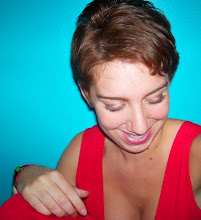I’ve been thinking about superheroes stories. In all the comics, movies and tales, when one is given extraordinary powers, they either execute them for good or evil. Obvious that those who choose to use their new power for evil do so to gain more power over those who are weaker—a pathetic and unsophisticated way to spend your time here on Earth. What interests me more is the urge of responsibility heroes like Superman and Spiderman felt with their power. Their superpowers are a privilege, an obvious advantage over the rest of the human population. With this privilege, they felt an overwhelming responsibility to protect and spread their privilege.
Note the word ‘superpower’ and think about today’s politics...
A story meriting little mention to the world was an assassination attempt here in Dhaka a couple of weeks ago. The attack was aimed at Fazle Noor Taposh, a lawmaker and nephew of the Prime Minister of the Awami League party Sheikh Hasina; only 13 people were reported to have been wounded.
I was told this the morning of my last day of Bangla class. My teacher Pulok revealed the story to Hiroto and I. Somehow I brought up the corruption of the Bangladesh government, listed to be the second most corrupt government in the world according to Nation Master. I began to argue that the Bangladeshi people kept the government corrupt by electing the same officials and politicians who don’t do much for citizens.
“How can we elect new politicians when you can’t become a politician without money?" said Pulok-Da. "The same people keep getting reelected because it’s the same people who have all the money.” It’s something I’ve noticed too; there is a very small middle class in Bangladesh, mostly living in Dhaka. And when they are poor – they are destitute. When they are rich – they. are. RICH! I’ve seen Escaldes almost flatten beggars on Mirpur Road.
Pulok-da went on to say that it is up to America to end corruption in government (and other Western governments, but we’ll use America as the example because the world DOES use us as an example: we are both the lock and the key to the worlds problems.) “It’s up to America to put pressure on our government to change her ways of corruption. America has already done that with Islamic fundamentalism—and it’s working! Believe me that there are less violent uprisings and radical groups than a few years back. A lot of it has to do with the money America gives to us to suppress these radical regimes, and the investigations to confirm the money is spent to end these violent ideologies. If America would only do the same for our corrupt government, maybe we would get somewhere.”
I stated that yes, external pressure from governments does have some effect (i.e. South Africa’s apartheid), but pressure has to come internally—from the people themselves. Pulok-da looked up and said, “With what rights? This is not a democracy, only a façade. I have no say. The police can arrest and frame me for anything. If Obama’s daughter committed a murder, she would be jailed, she is not protected just because she is a VIP. But here, if Sheik Hasina’s cousin did the same, he would be protected. Even with my job, I have to listen to everything my boss says. If he said to walk from my house to my work, a trip of over 4 hours, I would have to. I risk losing my job if I ever disobey and how will a find another? You must listen to your boss in the US but you have rights and you can argue and still keep your job. If you were unlawfully fired or hurt, you can seek retribution. We can’t argue here. No, we need you.”
America’s superpower is that of voice—the freedom and the protection of our voices. Let’s think clearly of how we are going to decide to use it. Unlike other superheroes who didn’t ask for their privilege, we created our superpower and with it our responsibility.
Life is always more complicated than a comic strip, but perhaps our principles can be more simplified...
Follow-up: Response to Nikolas Kristof's Op-Ed





Eloquently put, your wisdom is beyond your years. Love mama xoxoxoxoxoxox
ReplyDelete